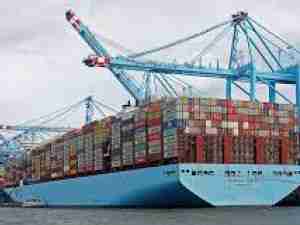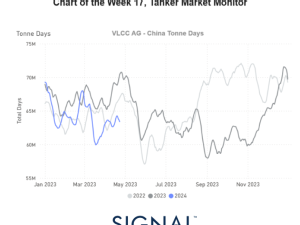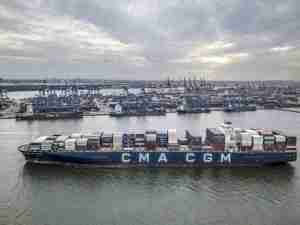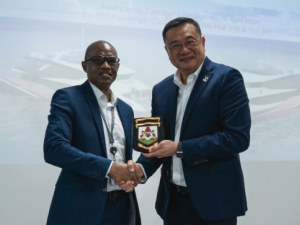International companies from cigarette makers to auto manufacturers and beverage bottlers are shutting down production in Ukraine as Russian armed forces roll into the country, adding further strain to fragile global supply chains.
Japan Tobacco Inc. said Friday it halted operations at a plant in Kremenchuk in central Ukraine, where it employs 900 staff. Bottling company Coca-Cola HBC shut down operations in the country and sent staff home, joining a growing list of firms including Carlsberg AS, Nestle SA and AB InBev Efes, a joint venture between Anheuser-Busch InBev NV and Anadolu Efes, to halt local production because of the fighting.
Russian aggression in Ukraine compounds stresses on supply chains already stretched by coronavirus infections, travel restrictions and shortages of key components such as microchips. Transportation of goods from China to Europe will be impacted as shipments pass through the region, said Luca Silva, chief executive officer of pumps and components maker ITT Inc.
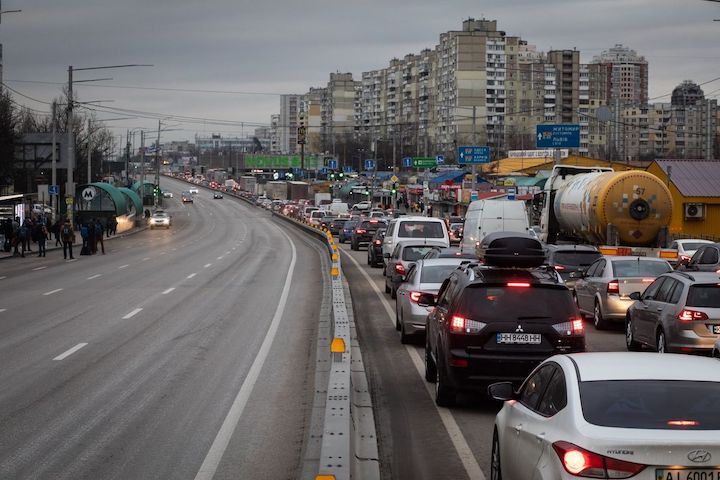
Here’s some of the corporate fallout from the hostilities.
Shipping Rates
Tokio Marine Holdings Inc., Sumitomo Mitsui Marine and Sompo Japan Insurance Inc. said the Black Sea will be classed as a higher-risk area from March, likely increasing insurance premiums for shipping goods or transiting through those waters. It isn’t clear how long the change will be in place.
Ukrainian and Russian waters in the Black Sea and the Sea of Azov were on Feb. 15. added to a list of enhanced-risk zones by the Joint War Committee, which includes representatives from Lloyd’s of London Ltd. and the International Underwriting Association of London Ltd.
“There have been no maritime incidents but the possibility of a miscalculation is clear,” Lloyd’s said on its website.
Rail Transport
Transportation of supplies from China to Europe “will be impacted by this war in Ukraine,” ITT’s Silva said at an industry conference on Thursday.
Companies have been leaning more heavily on rail transport as costs of shipping goods by sea have climbed due to congestion at ports during the pandemic.
Food and Drinks Production
Coca-Cola HBC said it enacted “contingency plans that include stopping production in Ukraine, closing our plant and asking colleagues in the country to remain at home and follow local guidance.”
Danish beermaker Carlsberg, which has 1,300 workers in Ukraine, halted operations at two of its three breweries and sent workers home. Nestle, the world’s largest food company, is temporarily closing three factories. It has 5,000 workers in the country.
Russian Carmaking
Fitch Solutions Country Risk & Industry Research expects Japan and the European Union to place “extensive sanctions” on Russia, making it “increasingly difficult” for Toyota Motor Corp. and Germany’s Volkswagen AG to continue operating in Russia. “We expect that stakeholders will place pressure on the firms to reconsider their operations,” Fitch said in a report.
U.S. technology sanctions risk exacerbating a chip shortage among carmakers in Russia, which also risk losing car-component supplies from the EU, according to the report. The conflict has implications for carmakers globally too, because Russia is one of the biggest producers of materials in electric vehicles, as well as petrol- and diesel-powered cars, it said.
Russia is the third-largest supplier of nickel in lithium-ion batteries and provides 40% of the palladium for catalytic converters, while about 90% of U.S. semiconductor-grade neon supplies comes from Ukraine, according to Fitch.
“Disruptions to the flow of any of these materials would have a costly effect for automakers around the world, particularly in Europe and North America,” Fitch said.
